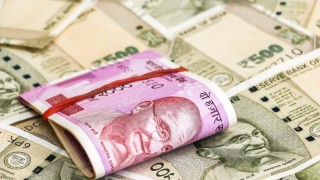If you can stop spending money unnecessarily, you will quite obviously have more money left over each month.
Unless you happen to be fabulously wealthy, spending more money than you need to is simply folly. Okay, it may well be that you don’t have any needs to fulfil other than satisfying your aspired standard of living. But if you spend less, you can save more, and that is important.
One of the best tips about how to begin saving (after stopping spending money unnecessarily), is to pay yourself. What we mean by this is to set aside a particular sum every month (say, 10% of your monthly wage) and put this into some sort of savings vehicle. Utilize a simple monthly budget template to help you plan how to spend the rest of your money for the year.
Set up a direct debit to your savings account
What people often decide to do instead is to save whatever they have left over each month. Although this a good idea, it is somewhat whimsical. There’s no real pressure to set anything aside, and the result is that you may spend it all.
By setting the money aside in the first place, it leaves you less to buy other things. That in itself is an excellent way to stop spending money just for the sake of it. Another good idea is to set-up a direct debit. It takes any uncertainty out of the equation. You don’t have to make a decision month after month. It is already done for you automatically.
How to stop spending money on interest
Credit and store cards are a part of modern day life. They have become woven into the fabric of society. The best way to use credit cards is to treat them like cash cards; in other words, pay for any purchases in their entirety within 30 to 57 days depending on the cards’ terms and conditions.
But of course, that is not usually done. The debts are left outstanding and typically get added to, week after week.
What this means is that there is an ever-increasing balance to be repaid. That in itself is not good, but what is worse is the fact that you have to pay interest on any surplus, and that can be quite expensive. Some cards offer interest-free credit but then charge an annual fee instead. If you would like to check out the various costs on South African credit cards, take a look at the report on the businnesstech website.
If you pay off any credit cards or loans (which also cost you interest) or start reducing them as much as you can, as quickly as you can, it will be cheaper for you in the long run.
More tips on curbing your expenditure
There are many other ways you can explore to help you to stop spending money unnecessarily. There are some excellent tips on the Wonga website, and these include things like budgeting, renegotiating your premiums on products like insurance policies, and cancelling any unused or partly used subscriptions.
Although many South Africans struggle to get by each month, many nonetheless own smartphones. These devices themselves can be expensive to run – especially if you are not careful about the apps you use. But some apps are beneficial and have been designed to actually help you to save money.



